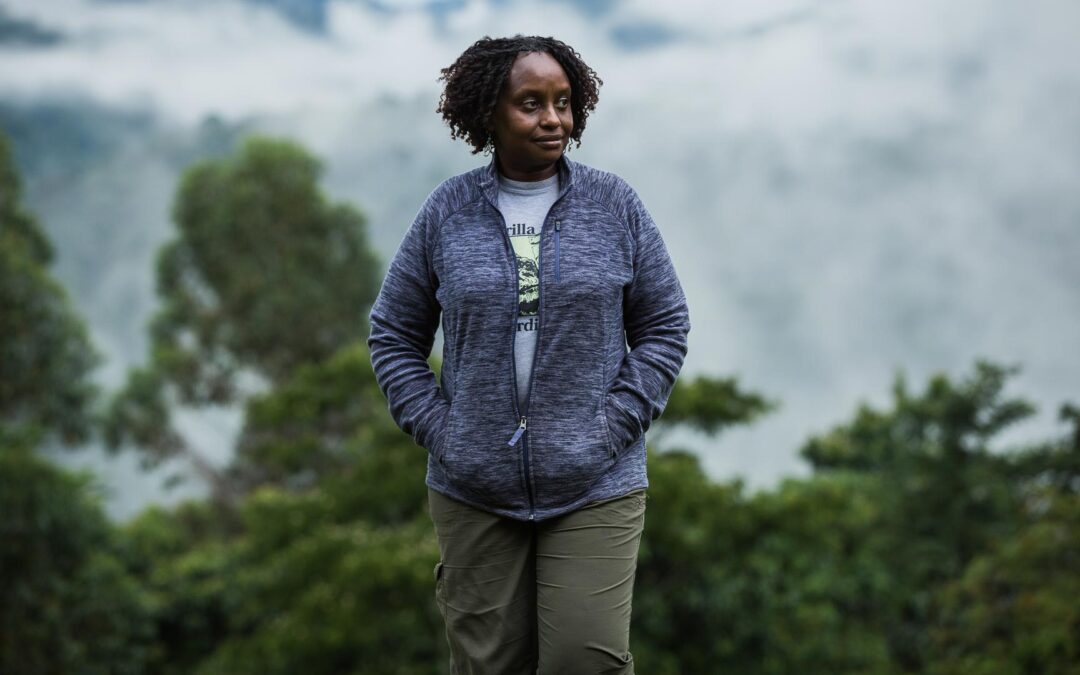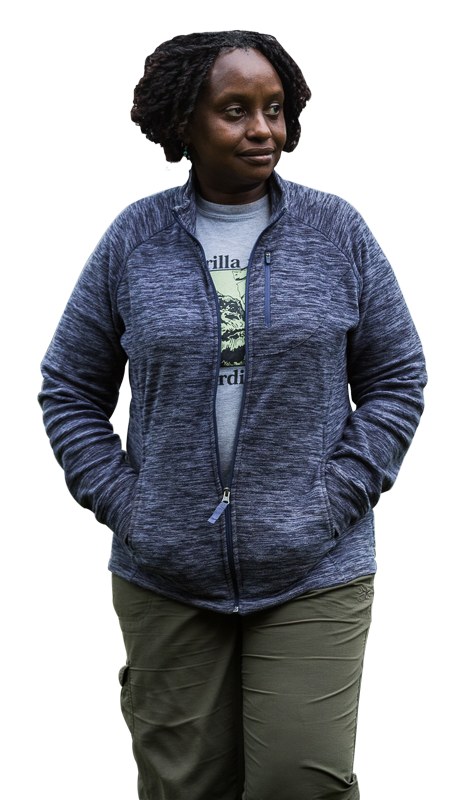Improving human and wildlife health in Uganda
Dr. Gladys Kalema-Zikusoka, Founder, Conservation Through Public Health, is a Winner of the 2022 Tällberg-SNF-Eliasson Global Leadership Prize. The jury recognized her persistent, innovative leadership in developing new approaches to human/wildlife interaction at a time when the danger of zoonotic diseases is rising worldwide.
In 1996, Dr. Gladys, as she is known locally, became the first veterinarian at Uganda Wildlife Authority and one of her tasks was to attend to the mountain gorillas in Bwindi Impenetrable National Park. At that time there were only 650 mountain gorillas left in the wild and about half of them lived in the park. When scabies, a common skin disease, broke out in the village next to the park, it spread to the gorilla population. An infant gorilla died and the rest of the critically endangered animals only recovered with treatment. That tragedy helped Kalema-Zikusoka conceive of an integrated strategy for helping people and wildlife coexist.
New thinking for a new world
In 2003, she founded Conservation Through Public Health (CTPH) with her husband, Lawrence Zikusoka, a telecom specialist, and Stephen Rubanga. Through CTPH, Kalema-Zikusoka envisioned a more holistic way of improving the health and livelihood of local populations in Africa’s protected areas and wildlife-rich habitats. Traditional conservation in the region focused almost exclusively on the wildlife and their habitats, seldom involving nearby communities.
Dr. Gladys’s work forged new ways of collaborating between the sustainable development community, the Ministry of Health, and people living adjacent to Bwindi Impenetrable National Park. The CTPH’s innovative approach spawned programs to improve the hygiene practices of villagers and encourage entrepreneurism connected to the park. The result was improved health conditions and a decline in hunting and poaching as locals discovered ways of making money from tourism.
Transformation in action
Today, the park’s gorilla population has nearly doubled and the impact of CTPH has spread beyond the borders of Uganda. Today, Kalema-Zikusoka’s work is being replicated in five other East African countries, integrating family planning, human health, and environmental issues to create innovative solutions to conservation and poverty. She hopes to bring this multi-disciplinary approach to other habitats, including savannahs and mountains, where CTPH has started engaging local partners, as well as other continents.
Another focus of CTPH is responsible tourism. CTPH spearheaded a policy brief sharing their lessons learned with 13 African countries with indigenous great ape populations. The aim is to ensure tourism and human interaction don’t endanger animal wellbeing, even as both tourism and local villages flourish.
In 2015 Kalema-Zikusoka established Gorilla Conservation Coffee, a social enterprise providing above-market prices for responsibly sourced, high-quality coffee from 500 farmers bordering gorilla habitats. Once again, it’s a win-win: local populations are less dependent on the forest for fuel and food, and part of the proceeds are reinvested back into the conservation efforts of CTPH.
Indeed, that’s the key to Dr. Gladys’s success as a leader: she identifies strategies to assure that seemingly competing interests are aligned and then executes with imagination and persistence. Dr. Gladys has shared lessons from her leadership journey through a book “Walking with Gorillas” coming out in February 2023.



We thank Mr. Alan Stoga and Tallberg team for recognising our work with this global leadership prize.
Congratulations, you are so wonderful with your marvelous team. Tallberg Foundation makes many people very happy about supporting this fantastic protection of wildlife by raising livelihood and community empowerment.